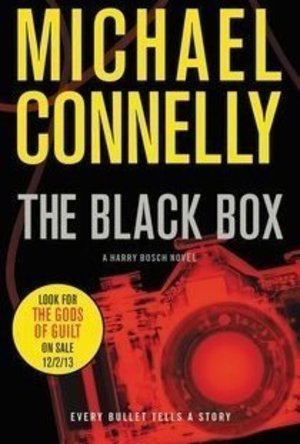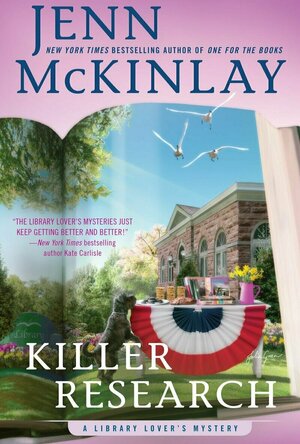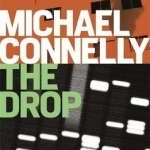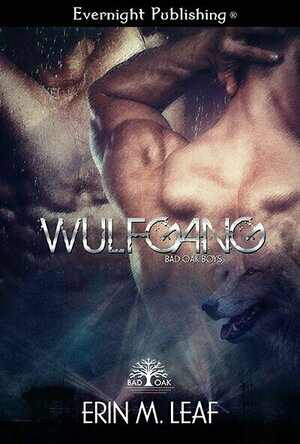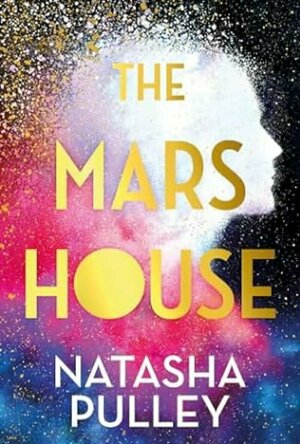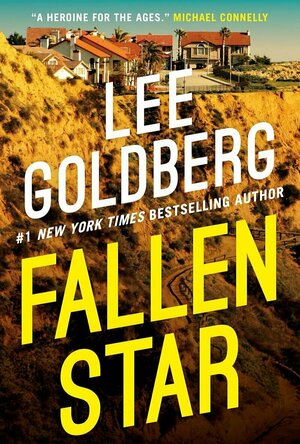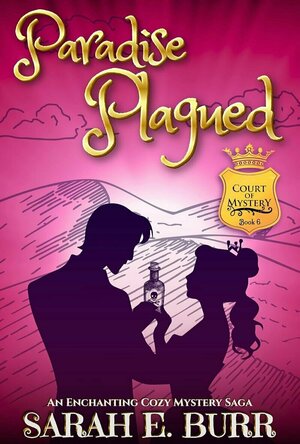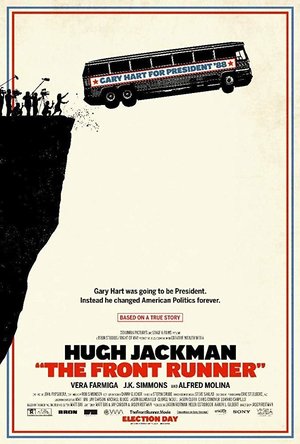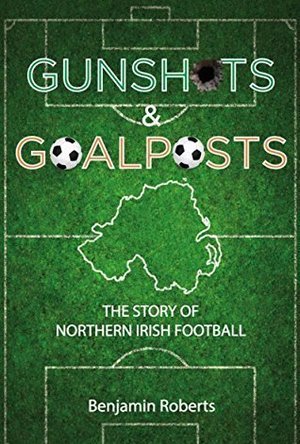Search
Search results
Murder During the LA Riots
When the LA riots happened back in 1992, Harry Bosch was a homicide detective who was called in to work crime scenes as quickly as possible since there were so many happening during that time. One of those was of a reporter from a paper in Europe. Nothing ever came of the case until twenty years later. Bosch is now working in the cold case squad, but a ballistics hit was just made that links the gun that killed the reporter to gang related murders that have happened in the years since. Can Bosch use this fresh new lead to finally solve the case?
Once again, part of the fun of the series is watching Bosch work his way to the conclusion. I never would have guessed it, but it makes perfect sense when we get there. Along the way, I enjoy spending time with Bosch and seeing how his life has evolved. I especially enjoyed watching his relationship with his daughter in this book. I did find the office politics Bosch faces border on clichéd, although I did see the higher ups point in one aspect here. I also found something that happened near the climax a little too convenient. But both of these are minor points in an otherwise strong book that will please series fans.
Once again, part of the fun of the series is watching Bosch work his way to the conclusion. I never would have guessed it, but it makes perfect sense when we get there. Along the way, I enjoy spending time with Bosch and seeing how his life has evolved. I especially enjoyed watching his relationship with his daughter in this book. I did find the office politics Bosch faces border on clichéd, although I did see the higher ups point in one aspect here. I also found something that happened near the climax a little too convenient. But both of these are minor points in an otherwise strong book that will please series fans.
Mark @ Carstairs Considers (2470 KP) rated Killer Research in Books
Nov 3, 2021
Murder Complicates Elections
The election for mayor is six months away, but the politics is already heating up. Mayor Hensen is upset that Ms. Cole is running against him, and he’s making life difficult for Lindsey Norris and the rest of the library staff. Then, Ms. Cole finds a dead body in her trunk. When her connection to the victim comes to light, the mayor uses everything he can to drive Ms. Cole out of the library and out of the race. Can Lindsey figure out what is happening before Ms. Cole’s reputation is ruined?
I love it when background characters get time to shine, and I’ve enjoyed watching Ms. Cole go from a one note character to a fully developed character over the last few books. That continues here. The rest of the cast is just as fantastic, and I loved seeing them again. The plot is strong with plenty to keep me engaged as I read. The climax was a bit theatrical, but it was also fun, so I’m willing to let it go. Speaking of fun, I laughed multiple times over the course of the book. We’ve got the usual book discussion, craft, and recipe extras at the end. Fans will enjoy this book, and if you are new to the series, be sure to check it out.
I love it when background characters get time to shine, and I’ve enjoyed watching Ms. Cole go from a one note character to a fully developed character over the last few books. That continues here. The rest of the cast is just as fantastic, and I loved seeing them again. The plot is strong with plenty to keep me engaged as I read. The climax was a bit theatrical, but it was also fun, so I’m willing to let it go. Speaking of fun, I laughed multiple times over the course of the book. We’ve got the usual book discussion, craft, and recipe extras at the end. Fans will enjoy this book, and if you are new to the series, be sure to check it out.
Mark @ Carstairs Considers (2470 KP) rated The Drop (Harry Bosch #17) in Books
Jul 26, 2022
Bosch Has Two Cases Dropped on Him
LAPD Detective Harry Bosch is excited when he and his partner get handed a hot lead on a cold case from 1989. DNA from a blood sample has identified a suspect. The problem? He was eight-years-old when the murder happened. Before they can figure out what is really going on, they are handed a fresh case. Councilman Irvin Irving’s son died when he fell out of a hotel balcony. The question is, did he jump or was he pushed. Despite their previous history, Irving specifically requested Bosch work the case. Can he avoid the politics and solve both cases?
I was immediately intrigued with both of the cases presented here. Between the two, the story was always moving forward, and I had a hard time stopping before I reached the logical climax. One aspect was left opened, but it was small. One of the storylines goes pretty dark, and overall this is a darker book than I typically read, but as long as you know that, you’ll be fine. I do like Bosch, but some of his behavior to his partner was frustrating here. On the other hand, I enjoy watching his relationship with his daughter continue to grow. This is another strong entry that will please fans of the series.
I was immediately intrigued with both of the cases presented here. Between the two, the story was always moving forward, and I had a hard time stopping before I reached the logical climax. One aspect was left opened, but it was small. One of the storylines goes pretty dark, and overall this is a darker book than I typically read, but as long as you know that, you’ll be fine. I do like Bosch, but some of his behavior to his partner was frustrating here. On the other hand, I enjoy watching his relationship with his daughter continue to grow. This is another strong entry that will please fans of the series.
Merissa (13681 KP) rated Wulfgang (Bad Oak Boys #3) in Books
May 20, 2023
Silas needs a break from the rock n roll lifestyle of Bad Oak, so he decides to go back to his teaching roots for the summer and leave all the werewolf madness behind him. What he doesn't realise is that Wulfgang is about to make an appearance in his life, and that means a BIG change, in more ways than one.
I loved the fact that Silas is a calm character who accepts who he is and what has occurred. Too many times, the story is taken over the with angst of changing, whereas this story was able to concentrate on bringing a broken pack together and making it stronger, the politics that Bardulf is dealing with, and the dangers of aconite to the wolves.
This is a smoothly-paced and exceedingly well-written story, full of love, humour and angst, with characters that are well-rounded and delightful. If I had one warning about this book, it would be not to read the last few chapters in an airport, where people look at you strangely when you start crying! Absolutely and definitely recommended!
* A copy of this book was provided to me with no requirements for a review. I voluntarily read this book, and my comments here are my honest opinion. *
Merissa
Archaeolibrarian - I Dig Good Books!
Feb 15, 2016
I loved the fact that Silas is a calm character who accepts who he is and what has occurred. Too many times, the story is taken over the with angst of changing, whereas this story was able to concentrate on bringing a broken pack together and making it stronger, the politics that Bardulf is dealing with, and the dangers of aconite to the wolves.
This is a smoothly-paced and exceedingly well-written story, full of love, humour and angst, with characters that are well-rounded and delightful. If I had one warning about this book, it would be not to read the last few chapters in an airport, where people look at you strangely when you start crying! Absolutely and definitely recommended!
* A copy of this book was provided to me with no requirements for a review. I voluntarily read this book, and my comments here are my honest opinion. *
Merissa
Archaeolibrarian - I Dig Good Books!
Feb 15, 2016
ClareR (6054 KP) rated The Mars House in Books
Oct 1, 2024
Can I just say that I loved a book and leave it at that? Because this is one of those books.
Ok, a short summary:
January Sterling is a climate refugee, escaping the floods and intense heat for the Mars colony of Tharsis. Life as an Earthstronger on Mars isn’t ideal. He and the other Earthstrongers are seen as a danger to the native Martians: they are much stronger because of the weaker gravity, even though they’re much smaller. January and his fellow Earthstrongers are discriminated against and given the worst manual labour jobs.
January meets a Martian politician who is staunchly anti-Earth stronger, an somehow ends up in a sham-marriage. Of course, it’s a slow-burn romance with lots of peril, lies and climate change politics.
My only complaint, is that in trying to make the characters asexual, they all read as being very male. Perhaps it was just the way I read it.
The Mars House has a lot to say about climate change and its refugees - and the predictable refugee-haters. Instead of boats, they arrive in space ships, and the inhabitants of Mars are as scared of, and enraged by, these people, as some elements in our own society today.
I really enjoyed this book, and I loved how different it was to Natasha Pulley’s previous books. Whatever will she write next? I’ll be waiting!
Ok, a short summary:
January Sterling is a climate refugee, escaping the floods and intense heat for the Mars colony of Tharsis. Life as an Earthstronger on Mars isn’t ideal. He and the other Earthstrongers are seen as a danger to the native Martians: they are much stronger because of the weaker gravity, even though they’re much smaller. January and his fellow Earthstrongers are discriminated against and given the worst manual labour jobs.
January meets a Martian politician who is staunchly anti-Earth stronger, an somehow ends up in a sham-marriage. Of course, it’s a slow-burn romance with lots of peril, lies and climate change politics.
My only complaint, is that in trying to make the characters asexual, they all read as being very male. Perhaps it was just the way I read it.
The Mars House has a lot to say about climate change and its refugees - and the predictable refugee-haters. Instead of boats, they arrive in space ships, and the inhabitants of Mars are as scared of, and enraged by, these people, as some elements in our own society today.
I really enjoyed this book, and I loved how different it was to Natasha Pulley’s previous books. Whatever will she write next? I’ll be waiting!
Mark @ Carstairs Considers (2470 KP) rated Fallen Star in Books
Nov 26, 2025 (Updated Nov 26, 2025)
Body in a Barrel
LA County Sheriff Detective Eve Ronin and her partner are called to the scene of a body found in the Malibu Lagoon. Of course, it couldn’t be a body floating in the water. That would be too easy. In this case, the body was found floating in a fifty-five-gallon drum. What’s even more shocking is that Eve recognizing the victim. With his ties to some of the most powerful people in the county, can she find the killer without getting impacted by the politics of the case?
This book does contain some heavy spoilers for earlier stories in the series by necessity, but there is enough background you could jump in here. And what a wild ride it is. The plot spins in some unexpected directions, but I believed it all on the way to the logical climax. The characters are a little thin, but I do care about them. And I appreciate the depth we did get for Eve. The banter between the characters was fun, and the locker room humor was kept to a minimum. The violence was a little more than in the books I typically read. I’m ready for the next already, and fans of the series will be glad they picked this one up.
This book does contain some heavy spoilers for earlier stories in the series by necessity, but there is enough background you could jump in here. And what a wild ride it is. The plot spins in some unexpected directions, but I believed it all on the way to the logical climax. The characters are a little thin, but I do care about them. And I appreciate the depth we did get for Eve. The banter between the characters was fun, and the locker room humor was kept to a minimum. The violence was a little more than in the books I typically read. I’m ready for the next already, and fans of the series will be glad they picked this one up.
Mark @ Carstairs Considers (2470 KP) rated Paradise Plagued in Books
Nov 26, 2025
Jax Finds Vacation Turns Political
Jax, her new husband, and her closest friends are escaping to the Ogdam Oasis for a much-deserved vacation. She is going under an assumed name in a hope to truly be able to relax. However, Jax finds a dead body their first night there. When some things at the scene don’t add up, Jax determines that it was murder. Can she find a way to bring about justice without giving away who she really is?
It was longer than I intended before I returned to this series, but it was good to visit Jax again. All my favorite characters made the trip with her, and some of the others did get mentioned. Updates on the politics of the realm in the months since we last visited Jax slowed down the beginning, but I got caught up in the mystery once it really got going. I did figure one thing out early, but I was hooked all the way until the logical solution. A few of the characters didn’t come fully alive for me, but that was due to their limited page time. This story does move the series into a new direction, and I’m anxious to see what comes next. Fans will be glad they read this book and be ready for the next when they set this one down.
It was longer than I intended before I returned to this series, but it was good to visit Jax again. All my favorite characters made the trip with her, and some of the others did get mentioned. Updates on the politics of the realm in the months since we last visited Jax slowed down the beginning, but I got caught up in the mystery once it really got going. I did figure one thing out early, but I was hooked all the way until the logical solution. A few of the characters didn’t come fully alive for me, but that was due to their limited page time. This story does move the series into a new direction, and I’m anxious to see what comes next. Fans will be glad they read this book and be ready for the next when they set this one down.
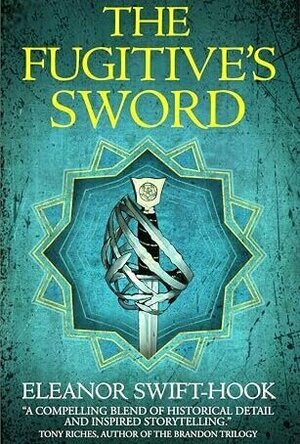
The Fugitive's Sword (Lord's Learning #1)
Book
Autumn 1624 Europe is deeply embroiled in what will become the Thirty Years' War. A young Philip...
Historical Adventure Series
Bob Mann (459 KP) rated The Front Runner (2018) in Movies
Sep 28, 2021
Candidate for a downfall.
We can all probably rattle off some of the classics movies with US politics as their backdrop. For me, “All the President’s Men”; “Primary Colors”; and “Frost/Nixon” might make that list. In the next tier down there are many great drama/thrillers – “Miss Sloane“; “The Post“; “The Ides of March”; “The American President”; “JFK” – and even some pretty funny comedies – “Dave” and “My Fellow Americans” for example. It’s actually quite difficult to think of many films on the subject that are outright dire, proving it remains a fertile ground for film-makers.
“The Front Runner” fortunately avoids this last category, but it’s certainly not good enough to make it into the ‘classics’ list either.
A true story.
The film is based on the true-story of US presidential hopeful Gary Hart (Hugh Jackman) and if you are NOT aware of the historical background then you might want to skip the rest of this review – and indeed all others – so you can see the film first and let the history come as a surprise to you.
Hart was younger than most candidates: good-looking, floppy-haired and refreshingly matter of fact in his dealings with the public and the press. Any interviews had to be about his politics: not about his family life with wife Lee (Vera Farmiga) and teenage daughter Andrea (Kaitlyn Dever).
Unfortunately, Hart has a weakness for a pretty face (or ten) and his marriage is rocky as a result: “Just don’t embarrass me” is Lee’s one requirement. His “nothing to hide” line to an intelligent Washington Post reporter – AJ Parker (a well cast Mamoudou Athie) – leads to a half-arsed stake-out by Miami Herald reporters and incriminating pictures linking Hart to a Miami pharmaceutical saleswoman Donna Rice (Sara Paxton). As the growing press tsunami rises, and his campaign manager (J.K. Simmons) gets more and more frustrated with him, can his candidacy survive and will his (now very much embarrassed) wife stick by him?
The turns.
Hugh Jackman is perfectly cast here; very believable as the self-centred, self-righteous and stubborn politician. But this central performance is surrounded by a strong team of supporting players. Vera Farmiga is superb as the wounded wife. Sara Paxton is heartbreaking as the intelligent college girl unfairly portrayed as a “slapper” by the media. The scenes between her and Hart-staffer Irene (Molly Ephraim), trying desperately to support her as best she can, are very nicely done. J.K Simmons as campaign manager Bill Dixon is as reliable as ever. And Alfred Molina turns up as the latest film incarnation of The Post’s Ben Bradlee – surely one of the most oft portrayed real-life journalists in film history.
“What did they just say”?
The biggest cause of dissatisfaction I have with the film is with the sound mixing. Was this a deliberate act by director Jason Reitman, to reflect the chaotic nature of political campaigning? Whether it was deliberate or not, much of the film’s dialogue – particularly in the first 30 minutes of the film – is drowned out by background noise. Sometimes I just longed for subtitles!
Just a little bit dull.
The screenplay, by Matt Bai (from his source book), Jay Carson (a Clinton staffer) and director Jason Reitman might align with the history, but the big problem is that the story’s just a little bit dull, particularly by today’s levels of scandal. This suffers the same fate as “House of Cards” (even before the Kevin Spacey allegations) in that the shocking realities of the Trump-era have progressively neutered the shock-factor of the fiction: to the point where it starts to become boring. Here, only once or twice does the screenplay hit a winning beat: for me, it was the scenes between Donna Rice and Irene Kelly and the dramatic press conference towards the end of the film. The rest of the time, the screenplay was perfectly serviceable but nothing spectacular.
When is a politician’s personal life private?
A core tenet of the film is Hart’s view that politics should be about the policies and not about the personality. Looking at the subject nowadays, it’s clearly a ridiculously idealistic viewpoint. Of course it matters. Politicians need to be trusted by their constituents (yeah, like that’s the case in the UK and the US at the moment!) and whether or not they slap their wives around or sleep with farm animals is clearly a material factor in that relationship. But this was clearly not as much the case in the 70’s as it is today, and the suggestion is that the Hart case was a turning point and a wake-up call to politicians around the world. (An interesting article by the Washington Post itself points out that this is also a simplistic view: that Hart should have been well aware of the dangerous game he was playing.)
Fidelity in politics.
Do you think that powerful politicos are driven to infidelity because they are powerful? Or that it is a characteristic of men who have the charisma to become political leaders in the first place? Such was the discussion my wife and I had in the car home after this film. Nature or political nurture? I’m still not sure.
It’s worth pointing out that to this day both Hart and Rice (interestingly, an alleged ex-girlfriend of Eagles front-man Don Henley) stick to their story that they never had sex.
Final thoughts.
The film’s perfectly watchable, has great acting, but is a little bit of a non-event. The end titles came and I thought “OK, that’s that then”…. nothing more. If you’re a fan of this style of historical political film then you probably won’t be disappointed by it; if not, probably best to wait and catch this on the TV.
“The Front Runner” fortunately avoids this last category, but it’s certainly not good enough to make it into the ‘classics’ list either.
A true story.
The film is based on the true-story of US presidential hopeful Gary Hart (Hugh Jackman) and if you are NOT aware of the historical background then you might want to skip the rest of this review – and indeed all others – so you can see the film first and let the history come as a surprise to you.
Hart was younger than most candidates: good-looking, floppy-haired and refreshingly matter of fact in his dealings with the public and the press. Any interviews had to be about his politics: not about his family life with wife Lee (Vera Farmiga) and teenage daughter Andrea (Kaitlyn Dever).
Unfortunately, Hart has a weakness for a pretty face (or ten) and his marriage is rocky as a result: “Just don’t embarrass me” is Lee’s one requirement. His “nothing to hide” line to an intelligent Washington Post reporter – AJ Parker (a well cast Mamoudou Athie) – leads to a half-arsed stake-out by Miami Herald reporters and incriminating pictures linking Hart to a Miami pharmaceutical saleswoman Donna Rice (Sara Paxton). As the growing press tsunami rises, and his campaign manager (J.K. Simmons) gets more and more frustrated with him, can his candidacy survive and will his (now very much embarrassed) wife stick by him?
The turns.
Hugh Jackman is perfectly cast here; very believable as the self-centred, self-righteous and stubborn politician. But this central performance is surrounded by a strong team of supporting players. Vera Farmiga is superb as the wounded wife. Sara Paxton is heartbreaking as the intelligent college girl unfairly portrayed as a “slapper” by the media. The scenes between her and Hart-staffer Irene (Molly Ephraim), trying desperately to support her as best she can, are very nicely done. J.K Simmons as campaign manager Bill Dixon is as reliable as ever. And Alfred Molina turns up as the latest film incarnation of The Post’s Ben Bradlee – surely one of the most oft portrayed real-life journalists in film history.
“What did they just say”?
The biggest cause of dissatisfaction I have with the film is with the sound mixing. Was this a deliberate act by director Jason Reitman, to reflect the chaotic nature of political campaigning? Whether it was deliberate or not, much of the film’s dialogue – particularly in the first 30 minutes of the film – is drowned out by background noise. Sometimes I just longed for subtitles!
Just a little bit dull.
The screenplay, by Matt Bai (from his source book), Jay Carson (a Clinton staffer) and director Jason Reitman might align with the history, but the big problem is that the story’s just a little bit dull, particularly by today’s levels of scandal. This suffers the same fate as “House of Cards” (even before the Kevin Spacey allegations) in that the shocking realities of the Trump-era have progressively neutered the shock-factor of the fiction: to the point where it starts to become boring. Here, only once or twice does the screenplay hit a winning beat: for me, it was the scenes between Donna Rice and Irene Kelly and the dramatic press conference towards the end of the film. The rest of the time, the screenplay was perfectly serviceable but nothing spectacular.
When is a politician’s personal life private?
A core tenet of the film is Hart’s view that politics should be about the policies and not about the personality. Looking at the subject nowadays, it’s clearly a ridiculously idealistic viewpoint. Of course it matters. Politicians need to be trusted by their constituents (yeah, like that’s the case in the UK and the US at the moment!) and whether or not they slap their wives around or sleep with farm animals is clearly a material factor in that relationship. But this was clearly not as much the case in the 70’s as it is today, and the suggestion is that the Hart case was a turning point and a wake-up call to politicians around the world. (An interesting article by the Washington Post itself points out that this is also a simplistic view: that Hart should have been well aware of the dangerous game he was playing.)
Fidelity in politics.
Do you think that powerful politicos are driven to infidelity because they are powerful? Or that it is a characteristic of men who have the charisma to become political leaders in the first place? Such was the discussion my wife and I had in the car home after this film. Nature or political nurture? I’m still not sure.
It’s worth pointing out that to this day both Hart and Rice (interestingly, an alleged ex-girlfriend of Eagles front-man Don Henley) stick to their story that they never had sex.
Final thoughts.
The film’s perfectly watchable, has great acting, but is a little bit of a non-event. The end titles came and I thought “OK, that’s that then”…. nothing more. If you’re a fan of this style of historical political film then you probably won’t be disappointed by it; if not, probably best to wait and catch this on the TV.
Review can also be found on: diaryofdifference.com/2018/05/24/gunshots-goalposts-the-story-of-northern-irish-football-benjamin-roberts-book-review/
For the lovers of football and history - this book will be of your interest. If you happen to have any connecting with Northern Ireland as well - this book is made for you!
<img src="https://images-eu.ssl-images-amazon.com/images/I/510KFWLQLML.jpg"/>;
I don’t think I fit in the description above. I love watching football - but I am not a football maniac, that knows who plays where, the club’s managers and who is on top of the Champion’s League this year. I love me some good sports matches, and I know a lot of players by name or face, but that’s about it.
Now - Gunshots & Goalposts: The Story of Northern Irish Football - the book that covers the stories of many football players in the past century in Northern Ireland.
While it covers so many stories, I wasn’t able to connect to any of the characters, and I choose to blame this on the way the book was written.
Which - is not a bad thing at all. Why? Because, this book is not meant to make you fall in love with the characters. It is instead, meant to show you the real picture of their lives, the politics that were ongoing in that time, and give you a brief history lesson of what you happened to miss in high school. All related to football, of course.
For me, it was very useful to learn a bit about the politics and history. Before I started the book, I knew NOTHING about Northern Ireland’s history. I knew NOTHING about their football history. This was a great first book for me to dive into the waters of the history of Northern Ireland's football.
The author, Benjamin Roberts, has done a wonderful job in the description and research. It covers a lot of the history period from the First and Second World War, the protestants vs catholics, the unionists vs nationalists, the east vs the west.
This book reminds me a lot of a movie that has been made in the country where I was born - Macedonia. The movie was called ‘’The Third Half’’ and deals with Macedonian Football during World War II, and the deportation of Jews from Macedonia. It reminded me a bit of this, even though in this book we don’t connect with the characters, or dive into their stories too much.
This is a three-star book for me - for the sole reason that this is not a book that I would usually read, and I wouldn’t read books similar to this one either. I enjoyed it, at times, but wouldn’t re-read it. However, I would definitely recommend it to people that love both football and history. I just prefer books where I connect with the characters.
For the lovers of football and history - this book will be of your interest. If you happen to have any connecting with Northern Ireland as well - this book is made for you!
<img src="https://images-eu.ssl-images-amazon.com/images/I/510KFWLQLML.jpg"/>;
I don’t think I fit in the description above. I love watching football - but I am not a football maniac, that knows who plays where, the club’s managers and who is on top of the Champion’s League this year. I love me some good sports matches, and I know a lot of players by name or face, but that’s about it.
Now - Gunshots & Goalposts: The Story of Northern Irish Football - the book that covers the stories of many football players in the past century in Northern Ireland.
While it covers so many stories, I wasn’t able to connect to any of the characters, and I choose to blame this on the way the book was written.
Which - is not a bad thing at all. Why? Because, this book is not meant to make you fall in love with the characters. It is instead, meant to show you the real picture of their lives, the politics that were ongoing in that time, and give you a brief history lesson of what you happened to miss in high school. All related to football, of course.
For me, it was very useful to learn a bit about the politics and history. Before I started the book, I knew NOTHING about Northern Ireland’s history. I knew NOTHING about their football history. This was a great first book for me to dive into the waters of the history of Northern Ireland's football.
The author, Benjamin Roberts, has done a wonderful job in the description and research. It covers a lot of the history period from the First and Second World War, the protestants vs catholics, the unionists vs nationalists, the east vs the west.
This book reminds me a lot of a movie that has been made in the country where I was born - Macedonia. The movie was called ‘’The Third Half’’ and deals with Macedonian Football during World War II, and the deportation of Jews from Macedonia. It reminded me a bit of this, even though in this book we don’t connect with the characters, or dive into their stories too much.
This is a three-star book for me - for the sole reason that this is not a book that I would usually read, and I wouldn’t read books similar to this one either. I enjoyed it, at times, but wouldn’t re-read it. However, I would definitely recommend it to people that love both football and history. I just prefer books where I connect with the characters.
